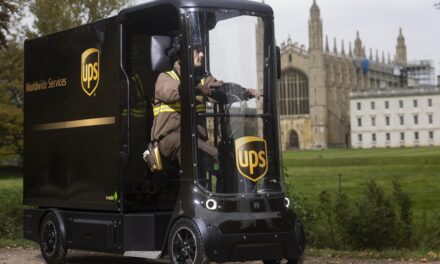
Some US franchisees unhappy with UPS
With a gleaming new sign out front and more small packages than ever coming through his doors, these should be the best of times for UPS Store owner John Kelley.
But a blizzard of boxes in December — the peak holiday shipping month — masked what Kelley says is a troubling fact for him and some other UPS Store owners: The franchises are less profitable now than when UPS bought their parent company in 2001.
"This year I've worked harder and made less money than at any other time since we opened in 1993," said Kelley, whose store is on Powder Springs Road in Cobb County. "Right now, I'm going over my books and trying to find out if we made anything at all during the Christmas season."
UPS' $191 million purchase of Mail Boxes Etc. gave the company 3,500 U.S. stores and immediately raised its retail profile. Last year, the company renamed them UPS Stores and spent millions of dollars in ads aimed at drawing home-office workers, telecommuters and mobile sales forces. Such customers are vital because, unlike high-volume clients who command steep discounts, infrequent shippers pay full fare.
The problem for UPS Store owners, however, is that UPS capped store shipping rates — a boon for consumers who get lower prices but a hardship for store owners accustomed to steep markups.
UPS Stores also lost their ability to ship via FedEx because the Memphis-based company won't offer its products in stores displaying the rival UPS brand. FedEx is attempting to come up with its own retail answer by buying Kinko's, the copy store chain, and its 1,500 stores for $2.4 billion.
"We lost our markups — and we lost FedEx," Kelley says. "I'm handling more UPS ground packages than ever, but my margins are so slim that it hardly seems worthwhile. Some of my best corporate accounts are loyal FedEx customers. Now I've got a lower-income customer than before."
UPS officials say more than 90 percent of the former Mail Boxes Etc. franchises elected to become UPS Stores last year. But a group of dissatisfied franchise owners is suing Mail Boxes and UPS in California. UPS won the first round when a state superior court judge threw the case out — but it has recently been amended and refiled.
Store owners say UPS is mimicking Wal-Mart and other large buyers that impose rates and force suppliers to cut costs or find other revenue sources.
UPS officials say their strategy is working. Large numbers of new customers came to UPS Stores during the holidays, and the "halo effect" has already lifted same-store sales in January. Even though store owners make less on each shipment, they have the opportunity to sell more office supplies, copies and other high-margin services.
"In the last nine months we've lowered prices, driven traffic to UPS Stores and launched new products and services," said Rocky Romanella, UPS director of global retail services. "Now, our challenge is to make people aware that each store is a business solution and a time saver.
"We've got a sound business model," he said, "and we're going to stay the course."
UPS hopes to add 500 UPS Stores this year and reach 5,000 by 2007. The company says the stores brought in $1.6 billion in sales in 2002, and that revenue grew 14 percent last year while UPS package volume through the stores surged 105 percent.
Romanella of UPS says inquiries from prospective store owners is at an all-time high, and that fewer UPS Stores failed last year than in previous years as Mail Boxes stores.
"People want to buy UPS Stores," he said. "We can barely keep up with demand."
But Howard Spanier, owner of a Mail Boxes store in Malibu, Calif., and one of the leaders in the suits against Mail Boxes and UPS, predicts UPS Stores will begin failing in two years or less.
"A lot of UPS Stores are going to close," Spanier said, "because they simply can't continue to operate on these margins. UPS is going to lose a lot of stores because the franchise owners just can't make it."
Spanier accuses UPS of using flawed arguments and inaccurate economic studies to persuade store owners to convert to UPS Stores.
Now, he says, UPS is squeezing them by imposing uniform prices and cutting profit margins. UPS Stores offer the same shipping rates for high-cost areas like Malibu and New York as the rest of the country.
"You expect to pay a different price for a Big Mac in Iowa than you do in Los Angeles," Spanier said. "Why won't UPS take cost differences into account?"
Spanier continues to offer FedEx and other competitive products. He says his revenue fell about 3.75 percent this year — but profits actually rose because more of his customers are shipping with FedEx and other firms that allow him to charge higher rates.
If he's successful in court, Spanier and other MBE store owners say they'll leave their parent company and avoid the royalty fees they're currently obligated to pay each month.
"I'm tired of paying royalties to a franchise that doesn't support me," said Spanier. "I can do better on my own."












